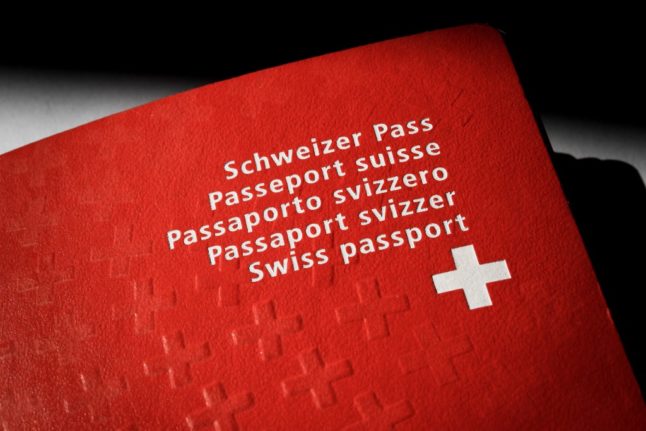Swiss health minister ready to brave cool weather to eat on restaurant terrace
After announcing the re-opening of outdoor restaurant spaces as of April 19th, the minister, Alain Berset, was asked by journalists whether he doesn’t find it too cold for outside dining.
“I don’t know about you, but I find it very pleasant to sit on a terrace while being warmly dressed”, he replied.
The Local will publish an article today on what the Swiss think about the Federal Council’s decision.
READ MORE: Switzerland to ease Covid restrictions from Monday
Politicians pressure the government to create Covid-19 passport
The internationally recognised vaccination (or immunity) certificate will allow those who have been vaccinated and who have tested negative after recovering from coronavirus, to take part in certain activities, including travel.
While the Federal Council said the pass will be introduced by summer, politicians are calling on the government to speed up the process.
“The government must create this digital record as soon as possible,” said Andrea Gmür-Schönenberger, president of the parliamentary group of the Center Party.
Petra Gössi from the Liberal party also urged quicker action. “Authorities must finally wake up and present a viable solution before the summer, as it is an important part of getting back to normal”.
READ MORE: Switzerland promises Covid-19 passport ‘by the summer’
Switzerland’s passport is one of the best in the world in 2021
The Swiss passport is in the 7th place, according to a new international ranking of how each passport is treated in global travel.
The study rated 199 countries based on travel freedom and access to visa-free destinations.
The Swiss passport allows visa-free entry to 185 countries, on a par with Belgium, New Zealand, Norway, the UK, and the USA.
Japan’s passport received the highest score.
You can see the whole ranking here.
As The @Independent reports, the #UK and #US continue to drop further down the #HenleyPassportIndex rankings since they jointly held the top spot in 2014, currently sharing seventh place, with a #visafree / visa-on-arrival score of 187.https://t.co/XfcjCKpbLH
— Henley & Partners (@HenleyPartners) April 14, 2021
Never too old to learn
Admitted by the University of Fribourg for a master’s degree in theology, a 35-year-old Togolese man did not obtain a residence permit on the grounds that he was too old to be a student.
Fribourg authorities based their refusal on the directive from the State Secretariat for Migration (SEM), which states that foreign students over the age of 30 are more likely to remain in Switzerland at the end of their training.
The Togolese appealed to the Federal Court, Switzerland’s highest judicial authority, which ruled in his favour.
The Court said that denial of the permit in this case violates the Swiss Constitution, which prohibits any discrimination linked to age. Authorities will therefore have to use other criteria for granting or denying a permit, such as whether the man meets all the conditions to study in Switzerland.
If you have any questions about life in Switzerland, ideas for articles or news tips for The Local, please get in touch with us at [email protected]



 Please whitelist us to continue reading.
Please whitelist us to continue reading.
Member comments